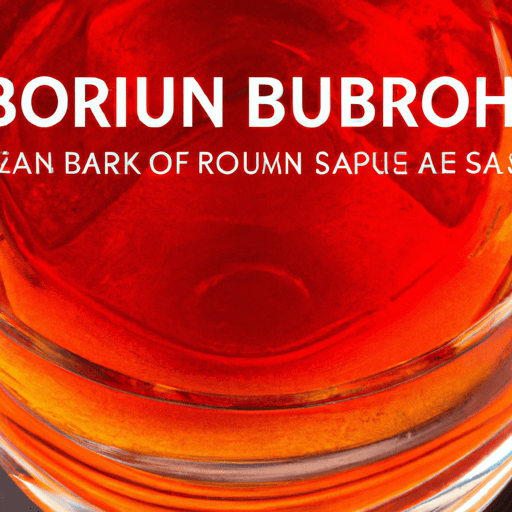The Allure of Bourbon Whisky in the Kitchen
Bourbon whisky, a beloved American spirit, is not only a remarkable drink to savor but also a versatile ingredient to enhance your culinary adventures. With its distinct flavors and rich history, bourbon whisky has become a staple in many kitchens, adding depth and complexity to various dishes. In this blog post, we will explore the captivating world of bourbon whisky, from its taste profile and common uses in cooking to its nutritional value and fascinating facts.
Tasting the Complexity
Bourbon whisky enthralls the palate with its unique combination of sweet, smoky, and spicy notes. Its flavor profile typically includes hints of vanilla, caramel, oak, and a touch of fruitiness. The smoothness and richness of this golden elixir make it an excellent choice for adding depth to your culinary creations.
Infusing Magic into Your Dishes
1. Sauces and Glazes
Bourbon whisky brings a delightful depth of flavor to sauces and glazes. Whether you’re preparing a tangy barbecue sauce or a sweet maple-bourbon glaze for roasted meats, the addition of bourbon whisky adds complexity and enhances the overall taste profile.
2. Desserts and Baked Goods
When it comes to desserts, bourbon whisky is a game-changer. Consider incorporating it into homemade salted caramel sauce, adding a boozy kick to bread pudding, or infusing bourbon into chocolate truffles. The combination of sweet and smoky undertones adds a luxurious touch to your sweet treats.
3. Marinades and Brines
Marinating meats and poultry in a bourbon-based marinade infuses them with incredible depth and tenderness. The bourbon helps to break down the proteins while imparting a delightful flavor. For a twist on classic brines, add a splash of bourbon to enhance the juiciness and impart a subtle smokiness.
Nutritional Value
Although primarily renowned as a beverage, bourbon whisky offers some surprising nutritional benefits when used in cooking. However, it’s important to note that the alcohol content evaporates during the cooking process, leaving behind the flavors and some residual sweetness.
While it’s not a significant source of vitamins or minerals, bourbon whisky does contain trace amounts of antioxidants from the barrel aging process. Additionally, it can act as a flavor carrier, allowing you to reduce the need for added fats or sugars in certain recipes.
Fascinating Facts and Historical Significance
Bourbon whisky is steeped in history and traditions that have shaped its prominence today. Here are a few fascinating tidbits about this beloved spirit:
- Bourbon must be made in the United States, with at least 51% corn as the primary grain. This distinct mash bill sets it apart from other types of whisky.
- The name “bourbon” is derived from Bourbon County, Kentucky, where the spirit gained popularity, rather than the whiskey’s origins.
- Bourbon must be aged in new, charred oak barrels, which contribute to its unique flavor profile and amber hue.
- Some bourbon distilleries have been producing this iconic spirit for centuries, passing down their craftsmanship from generation to generation.
Unleash Your Culinary Creativity
The allure of bourbon whisky in the kitchen is undeniable. Its complexity and distinctive flavors make it an extraordinary addition to a wide variety of dishes. Whether you’re experimenting with sauces, desserts, or marinades, bourbon whisky enriches the flavors and elevates your cooking endeavors. So go ahead and uncork a bottle of bourbon whisky to add a touch of magic to your next culinary masterpiece!
Note: When using alcohol in cooking, be mindful of your audience and their preferences. Always remember to cook responsibly and in accordance with legal drinking ages and restrictions.
Now it’s time to unleash your culinary creativity and marvel at the wonders bourbon whisky can bring to your kitchen! Cheers!
Origin: Bourbon whisky is a type of American whisky that has its origins in Kentucky, United States. It is believed to have been named after Bourbon County, which was one of the original counties in Kentucky.
Common Uses: Bourbon whisky is commonly used as a base spirit in cocktails such as the Old Fashioned and the Manhattan. It is also enjoyed neat or on the rocks. Additionally, bourbon is used in cooking and baking to enhance the flavors of various dishes and desserts.
Nutritional Benefits: Bourbon whisky is not known for its nutritional benefits as it is an alcoholic beverage. It contains calories and alcohol, but does not provide significant amounts of vitamins, minerals, or other nutrients.
Unique Properties: One unique property of bourbon whisky is that it must be made from a grain mixture that is at least 51% corn. It must also be distilled to no more than 160 proof (80% alcohol by volume) and entered into the barrel for aging at no more than 125 proof (62.5% alcohol by volume). Additionally, bourbon must be aged in new, charred oak barrels, which gives it distinct flavors and characteristics.
Historical Significance: Bourbon whisky has a rich history in the United States. It was first commercially produced in the late 18th century and gained popularity, particularly in the 19th century. Bourbon has been associated with cultural traditions such as the Kentucky Derby and is considered a symbol of American craftsmanship and tradition. Today, it remains a beloved spirit both domestically and internationally.




Use the share button below if you liked it.
It makes me smile, when I see it.